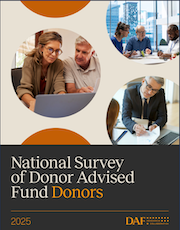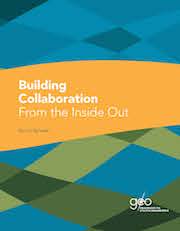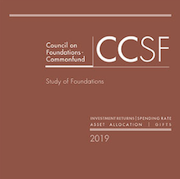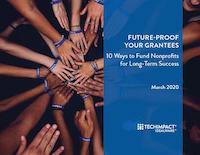Site Search
- resource provided by the Forum Network Knowledgebase.
Search Tip: Search with " " to find exact matches.
The PSEG Foundation has awarded more than $1 million to 301 community organizations, 39 of which are first-time recipients, the group announced this week.
The grants range from $500 to $21,000 for eligible 501(c)(3) organizations, many of which are supported by Public Service Electric & Gas and PSEG Long Island employee-volunteers year-round. The PSEG Foundation, a separate legal entity from Public Service Enterprise Group, is a 501(c)(3) organization.
The funding responds to a record number of applications for the annual Neighborhood Partners Program and nearly doubles the number of organizations awarded funding since 2020. Founded in 2014, the NPP provides grant funding for organizations based on demonstrated program effectiveness, depth and overall alignment with the PSEG Foundation’s strategic pillars: environmental sustainability, social justice and equity and economic empowerment.
The New Jersey Council for the Humanities (NJCH) has announced $231,768 in grant funding to 19 organizations across the state.
The awards are split between 9 Incubation Grants and 10 Action Grants and represent 10 counties in New Jersey. Incubation Grants help organizations plan, research, develop, and prototype public humanities projects and events. Action Grants help organizations implement a wide array of humanities-based projects, including public programs, exhibitions, installations, tours and discussion groups.
“Our most recent grantees are bringing under-told stories from throughout the state and world to new audiences,” said Carin Berkowitz, Ph.D., executive director of NJCH. “They demonstrate that understanding our shared history is key to understanding our current world.”
The Disability & Philanthropy Forum invites you to register for the 2024 Disability & Philanthropy Webinar Series. All of our 2024 webinars will be open to the public. This collective learning journey will focus on why a disability lens is essential to addressing key social justice issues. Each webinar will engage philanthropic leaders in conversation with disability advocates about how we can move toward a more equitable, inclusive future for all.
All webinars are open to the public, so feel free to share with anyone you know that's interested in learning about disability inclusion, rights, and justice.
CART will be provided. If you require another accommodation to fully participate in the webinar, please note it in your registration, or contact us at [email protected].
The Disability & Philanthropy Forum invites you to register for the 2024 Disability & Philanthropy Webinar Series. All of our 2024 webinars will be open to the public. This collective learning journey will focus on why a disability lens is essential to addressing key social justice issues. Each webinar will engage philanthropic leaders in conversation with disability advocates about how we can move toward a more equitable, inclusive future for all.
Disability in Indigenous Communities: November 14 - 1:00 - 2:00 p.m. ET
All webinars are open to the public, so feel free to share with anyone you know that's interested in learning about disability inclusion, rights, and justice.
CART will be provided. If you require another accommodation to fully participate in the webinar, please note it in your registration, or contact us at [email protected].

This report offers a comprehensive look into the characteristics and perspectives of individuals and families who utilize DAFs for their charitable giving in the United States. The study surveyed over 2,100 DAF donors, focusing on their demographics, financial characteristics, giving patterns, decision-making processes, motivations for using DAFs, and the role of DAFs in their overall philanthropic strategy.
The Princeton Area Community Foundation has awarded a total of $250,000 in grants to local nonprofits for summer initiatives that reach children and teens, including many whose families would not otherwise have access to affordable, high-quality programs when school is not in session.
The grants, funded through the Community Foundation’s Community Impact program, will support 26 summer programs that provide a wide variety of ac
tivities for young people, including arts instruction, academic enrichment, social-emotional learning opportunities, swimming and sports lessons. Many programs also provide transportation and meals. Some initiatives include bilingual instruction. Some are geared toward populations that may be difficult to reach, such as tweens and teens.
For many families, summer programs serve as safety nets that help working parents. But for many families, the programs are often out of reach, because of affordability or accessibility.
“Summer programs help reduce learning loss and provide much needed support for many working families who otherwise would not be able to enroll their children in quality, summer activities during the summer months,” Nelida Valentin, Community Foundation vice president of grants and programs, said. “These grants help nonprofit partners sustain terrific initiatives that serve some of our most vulnerable children, particularly teens and tweens in this region. We also want to thank our generous donors, whose support of our Community Impact grants program helps make these grants possible.”

Developed by Washington Regional Associations of Grantmakers' Public Education Working Group, How Do Teachers Become Great? shows that the highest level of student performance is directly linked to having high-performing teachers. High-performing teachers are products of effective professional development - and the development and teaching strategies of these educators can be replicated.
What factors should you consider if you want your grant investment to have the greatest impact on student academic success?
In the third session of Putting Racism on the Table (2016), Julie Nelson, Director of the Government Alliance on Race & Equity, Haas Institute for a Fair and Inclusive Society, focused on implicit bias. We encourage check out the viewing guide and discussion guide to be used with the video.
Watch the video
The Disaster Philanthropy Playbook, a comprehensive resource of best practices and innovative approaches to guide the philanthropic community in responding to future disasters, is now available for use at www.disasterphilanthropy.org/disaster-philanthropy-playbook/.
Designed as a multimedia, interactive website, the Playbook will be an “evergreen” resource designed for continued updates and knowledge-building. Community planning, civic rebuilding, legal services, housing, addressing the needs of vulnerable populations, working with local, state and federal government, mitigation and preparedness are some of the common issues faced by communities post disaster that are covered in detail in the Playbook.
The Disaster Philanthropy Playbook is a joint project of the Center for Disaster Philanthropy and Council of New Jersey Grantmakers in association with the Forum of Regional Associations of Grantmakers.


Wouldn’t it be nice if you could fund a single project that would have a positive impact throughout all of your grantees’ programs and services? There is: technology capacity building. Properly supported, the right technologies can build your grantees’ effectiveness and efficiency and multiply the impact of your other grants and programs. Many foundations are reluctant to support technology projects. As a result, many nonprofits are reluctant to directly ask for that support.
Tech Impact Idealware created this guide as a resource to bridge that gap.
